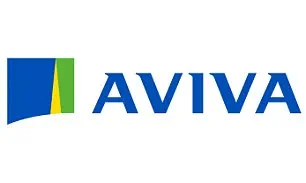Get Qualified Pension Advice Today…
Reduce ongoing costs, consolidate plans, find lost pensions, improve overall performance, plan for retirement, drawdown pension funds, transfer pensions, learn how to optimise your pension savings.
Our expert Pension advisers are on hand to help you to make sure your pension is on the right track.


"*" indicates required fields
Qualified FCA Financial Advice
We encourage you to check out their credentials at all times. That means you are protected and assured of getting qualified advice. When you speak to your advisor you can confirm their credentials on the FCA web site.
Find Real Expertise And Experience…
- Are qualified, authorised and experienced
- Are specialist pension advisors
- Are high net worth specialists
- Have a proven reputation for providing high quality advice
- Adhere to the strict FCA code of conduct
- Provide clear and simple to understand advice
- Have access to all the pension market place.
- Are accessible and provide regular reports and updates
- Are pro-active in working with their clients.
Fast High Quality Support
Soon after submitting your details you will be contacted to discuss your requirements and how you want to be interacted with.
Do I Have To Have Professional Financial Advice?
You must (by law) get regulated financial advice if you have:
- Final salary or known as a ‘defined benefit’ pension worth more than £30,000 and you are thinking of transferring it to a defined contribution pension scheme
- A defined contribution pension worth more than £30,000, and you want to give it up to do something else with your pension savings. A pension, like with a guarantee on how much you will be paid when you retire, is called a guaranteed annuity rate
How Do I Know How Much It Will Cost?
All initial consultations and reviews are completely no-obligation are not charged for.
Then, financial advisors are legally obliged to provide a written proposal, which details their initial fee and then what their ongoing fee’s are. It is then your choice if you wish to proceed.
Tracing a lost or forgotten pension in the UK can be a complex and time-consuming process, especially if you don’t have all the necessary information. However, there are steps you can take to try and locate your pension, including contacting your former employer, checking your paperwork, and contacting pension providers directly.
You can use the Pension Tracing Service that is offered through Pensions Advice UK; our team take the hassle out of finding your pension. But you will still need to supply who you worked for and where possible, any old paperwork or pension company names.
The UK government offer a free pension tracing service offered by the UK government.
This service can help you locate lost or forgotten pensions by providing you with contact details for your pension provider. However, it is not that straightforward to use this service It’s just a way to help you track down any pension savings you may have.
If you’re still having difficulty tracing your pension, seeking professional advice from a financial advisor or pension specialist may be beneficial. But often, they will not trace the pension unless you have other pension savings that they can take over and manage. Or they will charge you a fee to carry out the pension trace.
Regardless of the method you choose, taking the time to locate your lost pension can have significant long-term benefits for your financial well-being.
Choosing the right financial advisor can be a critical decision for your financial well-being, and it’s important to take the time to make an informed choice. Here are some tips to help you choose the right financial advisor for you:
- Research and compare: Do your research and compare different financial advisors, their experience, credentials, and fees. You can use online resources, referrals from friends and family, or professional associations to find potential advisors.
- Understand their services and fees: Make sure you understand the services offered by the financial advisor and their fees before you sign up. Some advisors charge a percentage of the assets they manage, while others charge a flat fee or hourly rate.
- Credentials and experience: Look for a financial advisor who has the necessary credentials and experience to help you achieve your financial goals. Some common credentials include Certified Financial Planner (CFP) and Chartered Financial Analyst (CFA).
- Ask for references: Ask the advisor for references and check them to get an idea of their track record and the level of service they provide.
- Communication and trust: Choose an advisor who communicates well and listens to your needs, goals, and concerns. Building trust and a good working relationship with your advisor is essential for long-term success.
- Understand their approach: Make sure you understand the advisor’s investment approach and philosophy. Do they take a passive or active approach? Do they invest in individual stocks or mutual funds? Make sure their approach aligns with your goals and risk tolerance.
Overall, choosing the right financial advisor is a personal decision based on your needs and goals. Take the time to research and compare potential advisors and make sure you understand their services, fees, credentials, and approach before you make a decision.
Here at Pensions Advice UK we make sure that all the advisers we recommend have the right credentials an dare fully authorised and qualified. Why not utilise our service today to get the advice you need.
The fee charged by a financial adviser can vary widely depending on several factors, including the adviser’s experience, the complexity of the services provided, the number of assets being managed, and the geographic location.
Some advisers charge a percentage of the assets under management (AUM), typically ranging from 0.5% to 2% per year. Others may charge a flat fee for specific services, such as creating a financial plan or providing investment advice.
The average fee for a financial adviser in the UK is around 1% of AUM per year, but it’s important to note that this is just an average and actual fee can vary widely. It’s important to discuss fees upfront with any potential adviser and ensure that you understand exactly what services you will be receiving for the fee charged.
So what is the maximum amount of pension savings I can make?
To understand this, you need to understand which group you belong to…
The first group includes those who contribute more than the standard amount, have a certain type of plan, or have reduced their contributions over time. They will need to pay an additional fee called the Annual Allowance (AA) charge.
The second group includes those who already have a lot of money saved in their pension plan or have a special type of plan that protects their savings. They will need to pay an additional fee called the Lifetime Allowance (LTA) charge.
The third group is the people who manage the pension plans, and they will need to make changes to their processes to account for these extra fees and charges.
Then:
The AA is the maximum amount of money you can save in a pension each year without paying extra tax. The MPAA is a lower limit for people who have already accessed their pension savings. The tapered AA is a limit for high-earning individuals.
The LTA is the maximum amount of money you can save in a pension in your lifetime without paying extra tax. If you save more than the limit, you will be charged extra tax. The government will remove the LTA from pensions tax legislation in the future.
You can get a tax-free lump sum when you start receiving your pension. The maximum amount is currently 25% of your available LTA. There will be a cap of £268,275 on this maximum amount.
If you get a tax-free lump sum that is over the LTA, you will be taxed at your normal income tax rate, not a special rate of 55%.
So what is the maximum amount of pension savings I can make?
To understand this, you need to understand which group you belong to…
The first group includes those who contribute more than the standard amount, have a certain type of plan, or have reduced their contributions over time. They will need to pay an additional fee called the Annual Allowance (AA) charge.
The second group includes those who already have a lot of money saved in their pension plan or have a special type of plan that protects their savings. They will need to pay an additional fee called the Lifetime Allowance (LTA) charge.
The third group is the people who manage the pension plans, and they will need to make changes to their processes to account for these extra fees and charges.
Then:
The AA is the maximum amount of money you can save in a pension each year without paying extra tax. The MPAA is a lower limit for people who have already accessed their pension savings. The tapered AA is a limit for high-earning individuals.
The LTA is the maximum amount of money you can save in a pension in your lifetime without paying extra tax. If you save more than the limit, you will be charged extra tax. The government will remove the LTA from pensions tax legislation in the future.
You can get a tax-free lump sum when you start receiving your pension. The maximum amount is currently 25% of your available LTA. There will be a cap of £268,275 on this maximum amount.
If you get a tax-free lump sum that is over the LTA, you will be taxed at your normal income tax rate, not a special rate of 55%.
So what is the maximum amount of pension savings I can make?
To understand this, you need to understand which group you belong to…
The first group includes those who contribute more than the standard amount, have a certain type of plan, or have reduced their contributions over time. They will need to pay an additional fee called the Annual Allowance (AA) charge.
The second group includes those who already have a lot of money saved in their pension plan or have a special type of plan that protects their savings. They will need to pay an additional fee called the Lifetime Allowance (LTA) charge.
The third group is the people who manage the pension plans, and they will need to make changes to their processes to account for these extra fees and charges.
Then:
The AA is the maximum amount of money you can save in a pension each year without paying extra tax. The MPAA is a lower limit for people who have already accessed their pension savings. The tapered AA is a limit for high-earning individuals.
The LTA is the maximum amount of money you can save in a pension in your lifetime without paying extra tax. If you save more than the limit, you will be charged extra tax. The government will remove the LTA from pensions tax legislation in the future.
You can get a tax-free lump sum when you start receiving your pension. The maximum amount is currently 25% of your available LTA. There will be a cap of £268,275 on this maximum amount.
If you get a tax-free lump sum that is over the LTA, you will be taxed at your normal income tax rate, not a special rate of 55%.
The rules for lifetime allowance have changed.
PLEASE SEE “Pension Tax Limits FAQ”What is the maximum amount of pension savings I can make?”
A UK based defined benefit pension is a pension plan in which the amount of pension you receive is based on a formula that takes into account your salary and length of service.
Under this plan, the employer guarantees a specific amount of retirement benefit to the employee upon retirement, regardless of how the underlying investments perform. The amount of the benefit is usually calculated as a percentage of the employee’s salary at the time of retirement, multiplied by the number of years of service with the company.
The employer is responsible for funding the plan and making the necessary contributions to ensure that the plan can meet its obligations to pay benefits to retirees. Because of the guarantee provided to the employee, defined benefit pensions are often considered more secure and predictable than other types of retirement plans.
In the UK, most defined benefit pensions are subject to regulation by the Pensions Regulator, which sets standards for funding, investment, and governance of these plans. Additionally, the Pension Protection Fund (PPF) was established to provide a safety net for members of defined benefit pension plans in the event that their employer becomes insolvent and the plan is unable to pay its obligations.
A UK Defined Contribution (DC) pension is a type of pension plan in which the amount of money an employee contributes is invested to build up a retirement fund.
Under this plan, the employee, and often the employer, makes contributions to the pension plan on a regular basis. The money is then invested in a range of assets, such as stocks, bonds, and mutual funds, with the goal of generating a return that will grow the retirement fund over time.
The final value of the pension fund will depend on the amount of money contributed, the investment performance of the plan, and the charges and fees deducted by the plan provider. At retirement, the pension fund can be used to purchase an annuity, which provides a guaranteed income for life, or withdrawn as a lump sum or in stages, subject to certain tax rules.
Unlike a defined benefit pension, the amount of retirement income you will receive from a defined contribution pension is not guaranteed and will depend on a variety of factors, including investment performance and annuity rates at the time of retirement.
In the UK, DC pensions are subject to regulation by the Financial Conduct Authority (FCA) and the Pensions Regulator, which set standards for investment, governance, and disclosure to ensure that individuals can make informed decisions about their retirement savings.
IN 2015 new rules came into force governing the way you can access your pension funds and what happens to those funds when you die. Most pension schemes provide some form of death benefit prior to your retirement and your pension beneficiary should contact the government pension advice service
Dependent on the type of pension, will depend on what happens to your funds, therefore it is really important to get qualified advice from an adviser who can then give you a clear understanding of what will happen, and importantly how to mitigate any implications that may be financial damaging in the event of your death .
- Get professional advice.
- Make sure you have a Will set up by a professional.
You can’t normally access funds in a pension until you are 55 and this is moving to 57 in 2028! You can then get 25% tax free and the rest you access is then taxable. Pension and tax rules change, so it is really important to take financial advice from a qualified professional.
One of the most popular types of Self Investment Pension – Is a SIPP – you can manage your own investments in your pension pot yourself. You can open a SIPP as well as any other person or work pension. If you use a SIPP you can include investments that may not be available through your existing pensions.
You can check on the FCA web site if an adviser is independent or not. The FCA web site is always a good place to go to check if the advice you are getting is independent.
There is a simple threshold of £30k – if your pension is less than this you have the option of not taking advice. However, if your pension is worth over £30k the government say that you need to take professional advice. This is to protect you and provide you with assurances that everything is done properly. Even if your pension is less than £30k in value – We would still suggest speaking to an adviser, they can help you to prepare for retirement or maximise the value of your pension fund and prepare for unforeseen events in your like.











